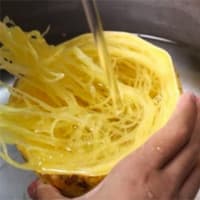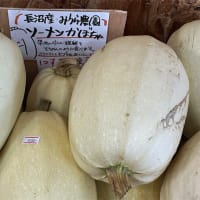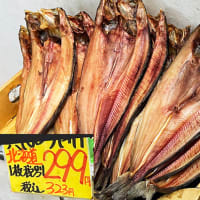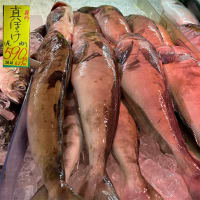



さて全13回に渡った「縄文シリーズ」が終了してしまった・・・。
自分でも国立歴史民俗博物館展示の感動を追体験するように
旧石器〜縄文には強く魂を揺さぶられていました。
そして心のどこかでは日本列島人はこのまま弥生に行かなければいいのに、
というような心情があふれてくるのを止められない(笑)。
それは縄文が土地本来の「豊かさ」を見せていたことへの愛惜なのか、
弥生後の歴史過程が東アジア世界との強い関係から規定されたことへの
言いようのない「おぞましさ」からかも知れない。
しかし農耕という生産手段は多数人口を養うことが可能になり
そして権力と国家があからさまに出現してくること。
その記録ツールとして文字・言語発展が同時並行するという人類の進展は、
なにより現実にわたしたちの列島社会に生起したことであり
わたしたちは自覚的か無自覚的かは別にして「受け入れる」しかない。
縄文の社会発展の必然的な結果としての国際関係性発展でもある。
人類社会の推移のなかで中国大陸に多くの人びとが住み続け
もっとも日本列島に近い人類の主要な文明圏であることは間違いがない。
半島の人びとも、わたしたち列島人もこの影響からは逃れようがない。
まず文字からしてわたしたちは受容した。
人間社会の「概念」というものを抽象化する手段を受け取ったのだ。
その基礎となったのが農耕の受容であったことは疑いようがない。
それは農耕文明が持つ根深いところの必然性なのだろうと思う。
一粒万倍、という四字熟語があるけれど、
このことは米作によって文字通り実現される奇跡を列島人は体験した。
また、米作には本家の中国南部地域よりもこの列島の方が適してもいた。
半島地域ではイマイチ発展しなかったけれど列島ではまさに最適だった。
パネル展示では紀元前5000年ころがアジアでの米作の出現期とされている。
それが紀元前800-700年頃に北九州で米作と連動する弥生土器が出現し、
紀元前700〜600年頃には近畿や伊勢湾地域まで広がった。
農耕社会がいちはやく出現した中国大陸では「国家」が出現する。
支配と被支配という社会の階層化、階級差別というものが
農耕文明には必然的なものだということがわかる。
また農耕の結果としての生産物は「長期保存可能」であって
高床式の倉庫群に仕舞い込まれるようになった。
それは「富の明確化」でもあって「奪いたい」欲求を引き起こすものでもあった。
「討ちて取るべし」という戦争の論理を人類に強烈に刷り込んだ。
文字の開発もこの富を計量化する必然の手段だったといえる。
この文明と同時並行する戦争の抑止について
人類は最終的な知恵として「民主主義」を創出するけれど、
21世紀の現代に至ってもまだ戦争の惨禍は拡大し人類は苦しみ続けている。
さて農耕社会はこの永き負の遺産を克服可能か?
English version⬇
[Agricultural Socialization and International Relations in the Far East: The 37,000-Year History of the Japanese Archipelago - 24]
Jomon shifted to Yayoi society with the development of agriculture. Power and warfare become more active and bloody. Writing was developed and accepted as a means of recording production. ...
Well, the 13-part "Jomon Series" has come to an end...
As I myself relive the excitement of the National Museum of Japanese History exhibit
Paleolithic - Jomon strongly shook my soul.
And somewhere in my heart, I wished the people of the Japanese archipelago had not gone all the way to the Yayoi period
I can't stop the feeling of "I wish the people of the Japanese archipelago had not gone to the Yayoi period" from overflowing in my heart (laugh).
Is it a regret for the Jomon's original "abundance" of the land, or is it a desire for the Yayoi to be able to live in the Yayoi period?
or that the post-Yayoi historical process was defined by a strong relationship with the East Asian world?
or perhaps it is the inexpressible "horror" of the fact that the post-Yayoi historical process was defined by a strong relationship with the East Asian world.
But agriculture, the means of production, made it possible to feed a large population, and power and the state were overtly established.
The development of writing and language as a tool to record this process.
The simultaneous development of writing and language as a tool for recording this development is a development of mankind that is more real than anything else.
This is, above all, what has actually occurred in our archipelagic society.
We have no choice but to "accept" it, whether consciously or unconsciously.
The development of relationships is an inevitable consequence of the social development of the Jomon period.
In the transition of human society, many people continued to live on the Chinese mainland
There is no doubt that the Chinese mainland has been the main sphere of human civilization closest to the Japanese archipelago.
Neither the people of the peninsula nor we islanders can escape this influence.
First of all, we have accepted the written word.
We received a means of abstracting the "concepts" of human society.
There is no doubt that the foundation for this was the acceptance of agriculture.
I believe that this is a deep-seated necessity of agricultural civilization.
There is a four-letter idiom that says, "One grain multiplies ten thousand times.
The people of the archipelago experienced the miracle of having this literally realized through rice cultivation.
The archipelago was also more suitable for rice cultivation than the original region of southern China.
The peninsula region did not develop well, but the archipelago was the perfect place for rice cultivation.
The panel exhibition shows the emergence of rice cultivation in Asia around 5000 B.C., which was followed by the emergence of rice cultivation in the 800-700 B.C. period.
This was followed by the appearance of Yayoi earthenware in conjunction with rice cultivation in Kitakyushu around 800-700 B.C., and then the appearance of Yayoi earthenware in the vicinity of 700-600 B.C.
By 700-600 B.C., Yayoi earthenware spread to the Kinki region and the Ise Bay area.
On the Chinese continent, where agricultural society emerged early, the "state" emerged.
The social stratification of domination and subjugation, and class discrimination
The production that resulted from agriculture was the result of the production of goods and services.
The products of agriculture could be stored for long periods of time.
and stored in warehouses on stilts.
This was both a "clarification of wealth" and a desire to "take.
The logic of war, "fight to take," was strongly imprinted on mankind.
The development of writing was also an inevitable means of quantifying this wealth.
The deterrence of war that runs concurrently with this civilization
Humanity created "democracy" as its final wisdom, but even today, in the 21st century
Even today, in the 21st century, the scourge of war continues to spread and human beings continue to suffer.
Can an agrarian society overcome this long-standing negative legacy?



















